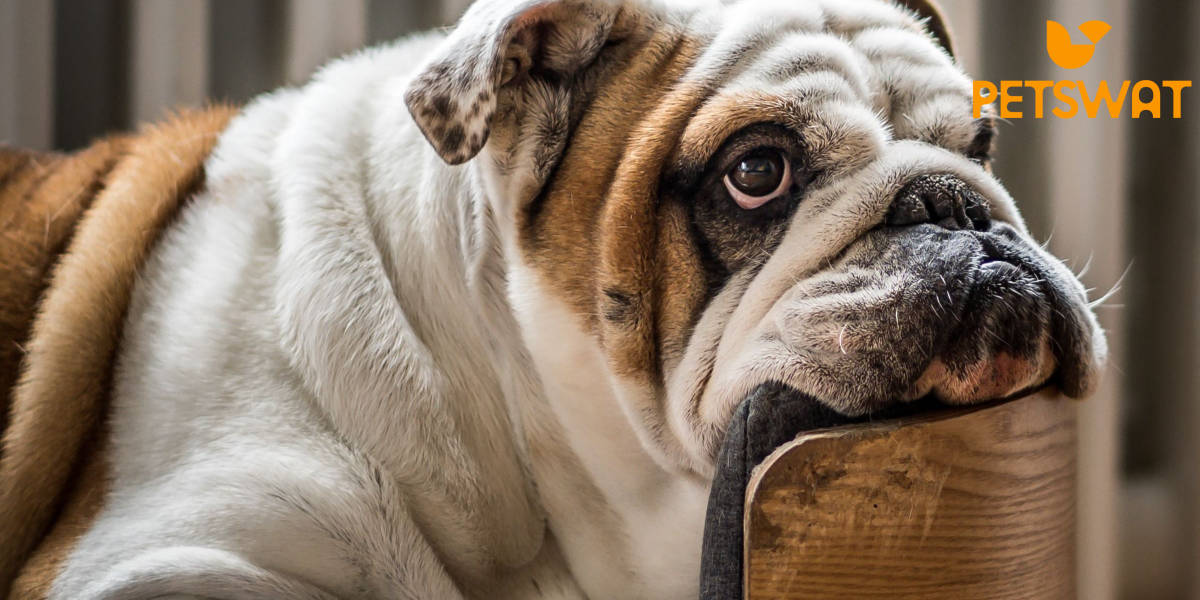Bulldogs are known for their unique and strong odor. This distinct smell can be off-putting for some people, but it is important to understand that it is a natural characteristic of the breed. Bulldogs have a number of factors that contribute to their odor, including their skin folds, sweat glands, and microbiome. Have you ever wondered Why Do Bulldogs Stink?
In this blog post, we will explore the science behind bulldog odor, factors that contribute to it, and ways to control it.
The Science Behind Bulldog Odor: What Causes It?
One of the main reasons why bulldogs have a strong odor is because they have more skin folds and wrinkles than other breeds. These skin folds can trap bacteria and moisture, leading to an unpleasant smell.
Additionally, bulldogs have a higher concentration of apocrine sweat glands compared to eccrine sweat glands. Apocrine sweat glands produce a stronger odor than eccrine sweat glands, which is why bulldogs tend to have a more pungent smell.
Another factor that contributes to bulldog odor is their unique microbiome. The microbiome refers to the community of microorganisms that live on the skin. Bulldogs have a different composition of bacteria on their skin compared to other breeds, which can contribute to their distinct smell.
Factors that Contribute to Bulldog Odor: Genetics, Diet, and Hygiene
Genetics can play a role in a bulldog’s odor. Some bulldogs may simply have a stronger natural scent than others due to their genetic makeup. However, it is important to note that genetics alone are not the sole cause of bulldog odor.
Diet can also affect a bulldog’s odor. If a bulldog is eating a low-quality diet or one that is high in certain ingredients, it can contribute to an unpleasant smell. It is important to feed your bulldog a balanced and nutritious diet to help control their odor.
Poor hygiene can also lead to a buildup of bacteria and odor. Bulldogs require regular grooming and bathing to keep their skin and coat clean. Neglecting their hygiene can result in a stronger smell. It is important to clean their skin folds, ears, and teeth regularly to prevent bacteria and odor buildup.
Identifying the Different Types of Bulldog Odor: Skin, Ear, and Mouth
Bulldogs can have different types of odor depending on the source. Skin odor is a common issue for bulldogs and can be caused by bacteria and yeast infections in their skin folds. These infections can lead to a foul smell that is difficult to eliminate without proper treatment.
Ear odor is another common problem for bulldogs. It can be caused by ear infections or excessive wax buildup. If your bulldog’s ears have a strong smell or are red and inflamed, it is important to have them checked by a vet.
Mouth odor can also contribute to a bulldog’s overall smell. Dental issues such as gum disease or tooth decay can cause bad breath, which can be quite unpleasant. Additionally, digestive problems can also result in foul-smelling breath.
Common Health Issues that Can Cause Bulldog Odor
Bulldogs are prone to certain health issues that can contribute to their odor. Allergies, for example, can cause skin irritation and infections, leading to a stronger smell. Bulldogs are also prone to skin infections such as pyoderma, which can result in a foul odor.
Dental problems are another common issue for bulldogs. Their short snouts and crowded teeth make them more susceptible to dental issues such as gum disease and tooth decay. These dental problems can cause bad breath, which adds to their overall odor.
It is important to address any underlying health issues that may be contributing to your bulldog’s odor. Regular check-ups with a vet can help identify and treat these issues, which can help control their smell.
The Importance of Regular Grooming and Bathing to Control Bulldog Odor
Regular grooming and bathing are essential for controlling bulldog odor. Bulldogs should be bathed at least once a month, or more frequently if they have a particularly strong smell. It is important to use a gentle shampoo and conditioner specifically designed for bulldogs, as harsh products can irritate their skin and make the odor worse.
In addition to regular bathing, it is important to clean their skin folds regularly. These folds can trap bacteria and moisture, leading to a stronger smell. Use a damp cloth or baby wipes to clean their skin folds, making sure to dry them thoroughly afterwards.
Regular brushing is also important for controlling odor. Brushing helps remove dead hair and dirt from their coat, preventing bacteria buildup. It also helps distribute natural oils throughout their fur, which can help reduce odor.
Choosing the Right Shampoo and Conditioner for Your Bulldog
When choosing a shampoo and conditioner for your bulldog, it is important to look for products that are pH-balanced and free of harsh chemicals. Bulldogs have sensitive skin, so using gentle products is essential to prevent irritation.
Consider using a medicated shampoo if your bulldog has a skin condition such as pyoderma or dermatitis. These shampoos are specifically formulated to treat these conditions and can help control odor.
After bathing, make sure to thoroughly rinse your bulldog’s coat to remove all traces of shampoo and conditioner. Any residue left behind can irritate their skin and contribute to odor.
Natural Remedies for Bulldog Odor: DIY Solutions to Try at Home
If you prefer natural remedies, there are several options you can try at home to help control your bulldog’s odor. Apple cider vinegar can be used as a natural deodorizer for their coat. Mix equal parts apple cider vinegar and water in a spray bottle and spritz it onto their coat. The vinegar helps neutralize odors and leaves their coat smelling fresh.
Coconut oil is another natural remedy that can help reduce bulldog odor. It has antimicrobial properties that can help combat bacteria on their skin. Apply a small amount of coconut oil to their skin folds and massage it in. This will help moisturize their skin and reduce odor.
Baking soda can also be used to absorb odors from your bulldog’s bedding and toys. Sprinkle baking soda onto their bedding or toys, let it sit for a few hours, and then vacuum it up. The baking soda will help absorb any lingering odors, leaving their belongings smelling fresh.
Professional Treatments for Bulldog Odor: When to Seek Help from a Vet or Groomer
If your bulldog’s odor is persistent or severe, it may be a sign of an underlying health issue that requires professional treatment. In these cases, it is important to seek help from a vet or groomer.
A vet can provide professional treatments such as ear cleaning or dental cleaning to help control your bulldog’s odor. They can also prescribe medication or recommend specialized shampoos for certain skin conditions.
A groomer can also provide professional grooming services that can help control odor. They have the knowledge and experience to properly clean your bulldog’s skin folds, ears, and teeth, which can significantly reduce their smell.
Conclusion: Keeping Your Bulldog Smelling Fresh and Clean
Bulldog odor is a common issue, but it can be controlled with proper hygiene and grooming. Regular bathing, cleaning of skin folds, and brushing are essential for keeping your bulldog smelling fresh and clean.
It is also important to address any underlying health issues that may be contributing to their odor. Regular check-ups with a vet can help identify and treat these issues, which can help control their smell.
With the right care and attention, your bulldog can smell fresh and clean. Remember to choose gentle products, consider natural remedies, and seek professional help when needed. By taking these steps, you can ensure that your bulldog is happy, healthy, and odor-free.
Originally posted 2023-07-24 08:24:05.
Johny is a dedicated pet enthusiast, author, and the driving force behind the insightful content at PetSWAT. With a deep passion for animals and a wealth of knowledge acquired through years of experience, Johny brings a unique perspective to the world of pet care and companionship.


